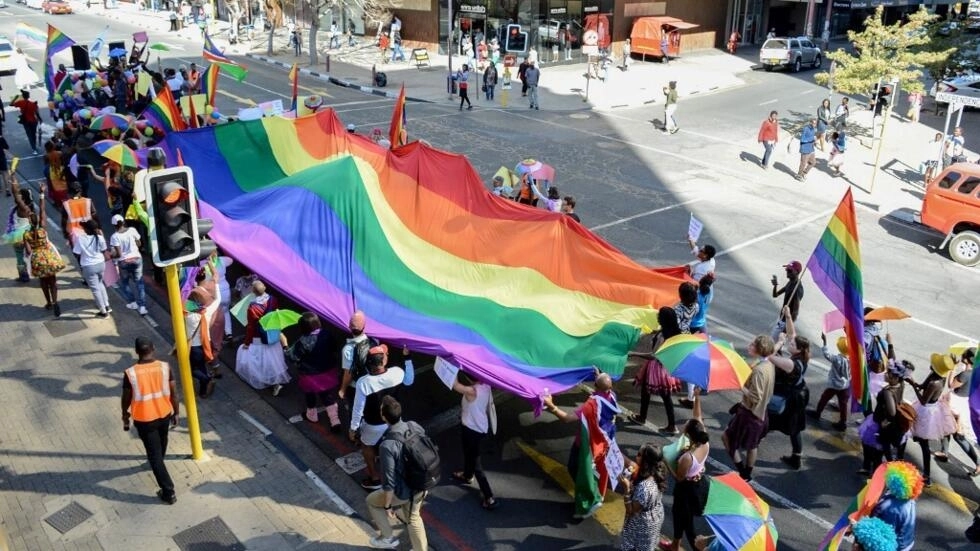
In a move that has ignited significant controversy, a high court in Namibia has ruled two colonial-era laws criminalizing same-sex acts between men as unconstitutional. The decision, handed down by the high court in Windhoek, has been met with fierce criticism from conservative factions within the nation, who view this as a severe blow to the country's traditional and moral values.
The ruling declared laws against sodomy and unnatural sexual offenses invalid, which LGBTQ rights groups have hailed as a historic victory. However, many Namibians feel this decision undermines the cultural and religious principles that have long been a cornerstone of their society. Friedel Dausab, the activist who brought the case with the support of the British NGO Human Dignity Trust, expressed joy over the ruling, calling it "a beautiful day for Namibia" and stating that "it is no longer a crime to love someone." This sentiment, however, is far from universally shared.

Despite the fact that these anti-homosexuality laws were seldom enforced in recent years, their existence served as a symbolic upholding of traditional values for many. The sudden nullification of these laws has left a significant portion of the population feeling alienated and unheard. Critics argue that the court's decision was influenced by external pressures and does not reflect the will of the Namibian people.
The Namibian government has a 21-day window to appeal the high court's decision. This period is expected to see intense lobbying from both sides of the debate. Conservative groups, bolstered by support from certain political and religious leaders, are urging the government to overturn the ruling. They argue that removing these laws could lead to a deterioration of societal norms and an increase in behaviors they deem immoral.
The historical context of these laws adds another layer to the controversy. When Namibia gained independence from South Africa in 1990, it inherited much of the existing legal framework, including these colonial-era statutes. While South Africa has since moved towards more progressive laws, including legalizing same-sex marriage and adoption by same-sex couples, Namibia has largely retained its conservative stance. This ruling marks a significant departure from that tradition and aligns Namibia more closely with a handful of other African nations that have decriminalized homosexuality, such as Mozambique, Botswana, Angola, and Gabon.
However, not all African nations are moving in this direction. In contrast, countries like Uganda, Nigeria, and Ghana have recently enacted or are considering stricter anti-LGBTQ laws. These moves are often supported by powerful conservative movements, some of which receive backing from international evangelical groups. In over half of the 54 countries in Africa, homosexuality remains illegal, reflecting deep-rooted cultural and religious beliefs.
As Namibia navigates this contentious issue, the ruling has spotlighted the stark divide between progressive and conservative elements within the nation. The backlash underscores the challenges that come with rapid social change, particularly in a society where traditional values are deeply ingrained.
In conclusion, while the recent court ruling is celebrated by some as a step towards greater equality and human rights, it is viewed by others as a threat to the moral fabric of Namibian society. The government’s decision on whether to appeal will not only determine the legal status of same-sex acts but also signal the direction in which Namibia will head in terms of balancing modern human rights with traditional values.















